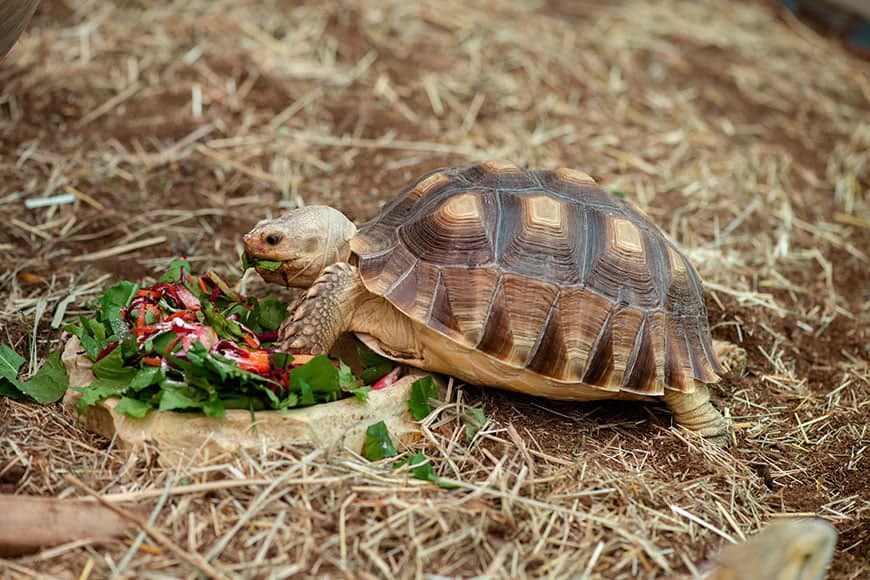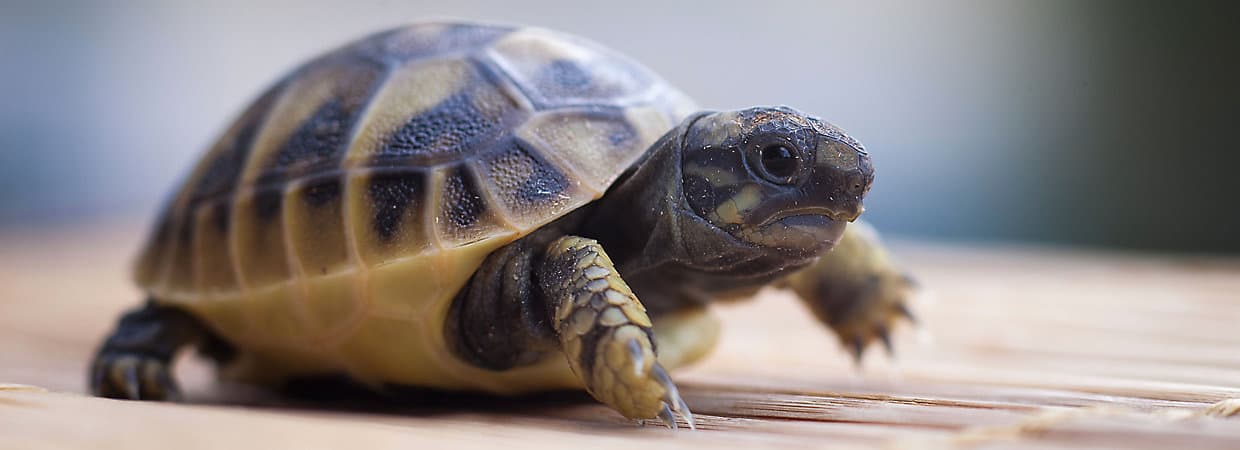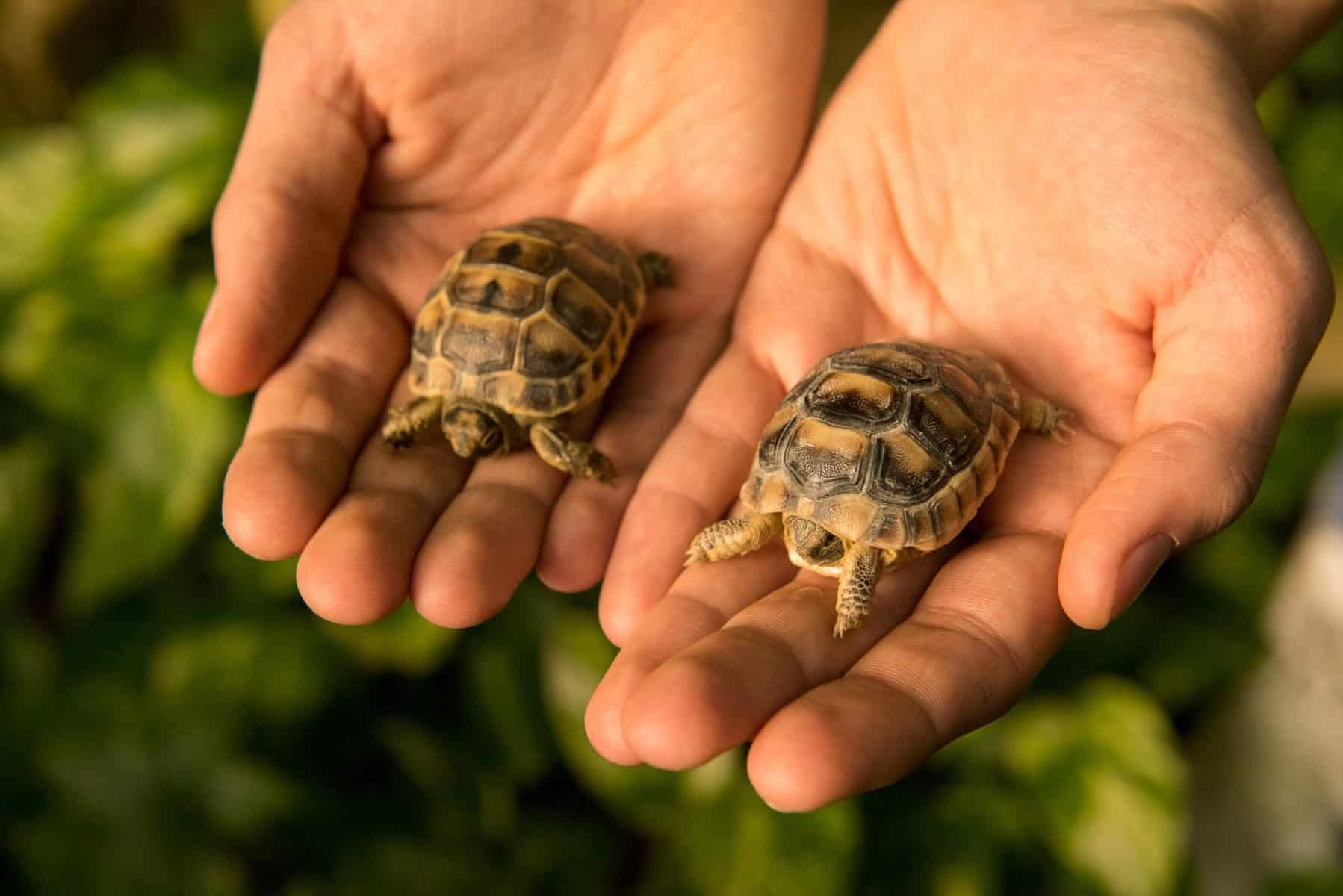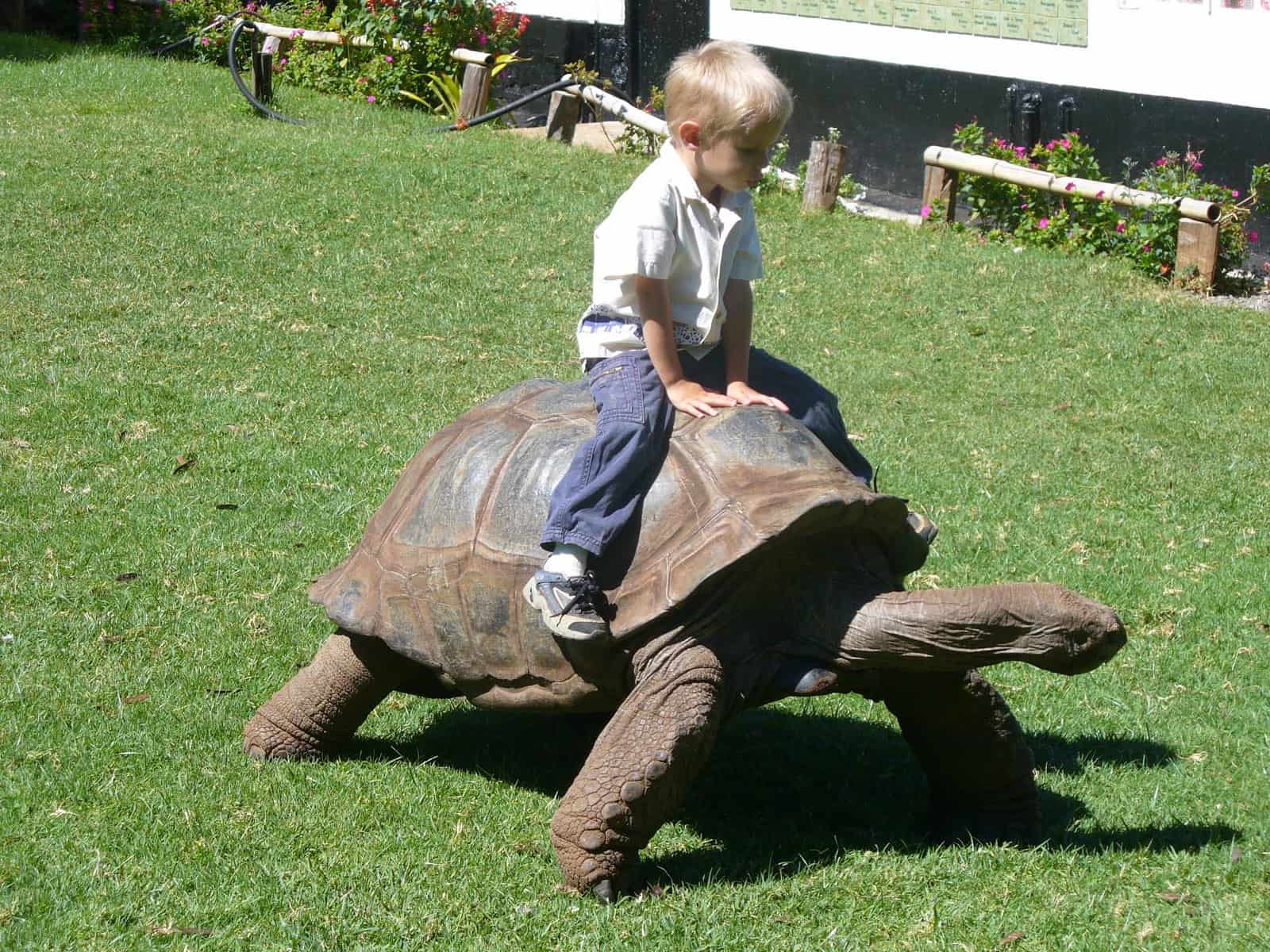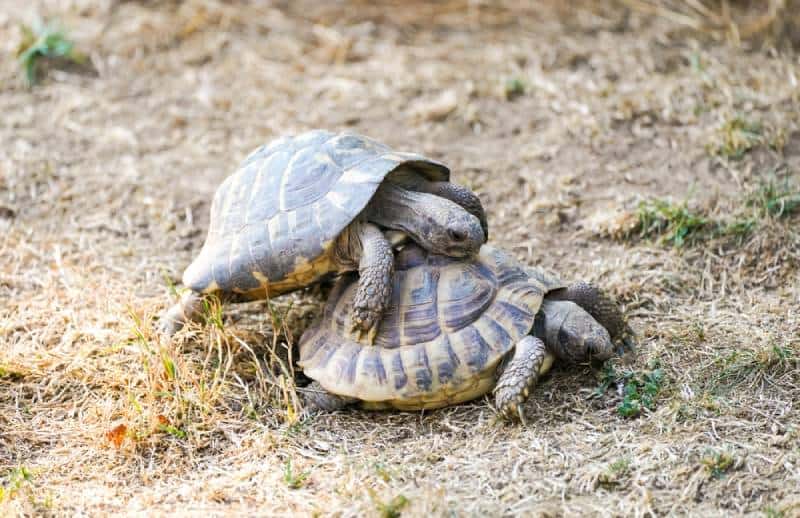Can you have a tortoise as a pet? Yes, you can have a tortoise as a pet. However, it’s essential to research and understand their specific care requirements, including habitat, diet, and environmental needs, before getting one.
Shell Yeah! Everything You Need to Know Before Adopting a Tortoise
Tortoises have a long and fascinating history as pets, dating back centuries. In ancient times, they were revered for their longevity and wisdom, often associated with mythical creatures and gods. Today, tortoises are popular pets due to their unique characteristics and low-maintenance nature.
Owning a tortoise comes with its advantages and disadvantages. On the positive side, these reptiles have a long lifespan, often living for several decades or even over a century. They require minimal attention compared to other pets like dogs or cats, making them suitable for busy individuals or those who prefer a more independent pet. Additionally, tortoises can be captivating companions with their slow-paced movements and gentle demeanor.
However, there are also drawbacks to consider when owning a tortoise. These creatures require specific care and habitat conditions to thrive, which can be challenging for some owners to provide consistently. Tortoises also have unique dietary needs that must be met in order to maintain their health. Furthermore, while they may not demand constant attention like other pets do, they still require regular monitoring and maintenance of their enclosure.
Key Takeaways
- Tortoises make great pets for those who are willing to commit to their care and unique needs.
- There are many different types of tortoises, each with their own characteristics and requirements.
- Proper enclosure and habitat setup is crucial for the health and happiness of your tortoise.
- A balanced diet and regular veterinary check-ups are important for maintaining your tortoise’s well-being.
- Tortoises may not be the best choice for everyone, so it’s important to consider all factors before adopting one as a pet.
Different Types of Tortoises and Their Characteristics
There are numerous species of tortoises available as pets today; each has its own distinct characteristics that make it appealing to different individuals based on personal preferences or living situations.
One popular species is the Russian Tortoise (Testudo horsfieldii). These small-sized tortoises are known for their hardy nature and adaptability in various climates. They have an average lifespan of 40-50 years when properly cared for.
Another commonly kept species is the Sulcata Tortoise (Geochelone sulcata), also known as the African Spurred Tortoise. These giants can grow up to 30 inches in length! However impressive they may be in size though; it’s important to note that they require a large outdoor enclosure to thrive.
The Greek Tortoise (Testudo graeca) is another popular choice among tortoise enthusiasts. These medium-sized tortoises are native to the Mediterranean region and have a lifespan of around 50-70 years. They are known for their friendly nature and relatively low maintenance requirements.
Understanding the Needs of a Tortoise
To provide optimal care for your tortoise, it’s crucial to understand their specific needs in terms of temperature, lighting, humidity, and exercise.
Tortoises are ectothermic creatures, meaning they rely on external sources of heat to regulate their body temperature. It’s essential to provide them with a basking area where they can soak up warmth from a heat lamp or natural sunlight. The ambient temperature in their enclosure should be maintained within a specific range depending on the species.
In addition to proper heating, adequate lighting is also crucial for tortoises’ overall well-being. They require access to UVB light in order to synthesize vitamin D3 and metabolize calcium effectively. This can be achieved through specialized reptile UVB bulbs or by providing access to natural sunlight if weather permits.
Humidity levels vary depending on the species of tortoise you own; some require higher humidity than others. It’s important to research your specific species’ needs and ensure that you maintain appropriate humidity levels within their enclosure through misting or providing shallow water dishes for them to soak in.
Exercise is an often overlooked aspect of tortoise care but plays an important role in maintaining their physical health and mental stimulation. Providing ample space for them to roam freely is essential; this can be achieved through supervised outdoor time or by creating an enriched indoor habitat with obstacles and hiding spots that encourage exploration.
Choosing the Right Enclosure for Your Tortoise
| Enclosure Size | Temperature Range | Humidity Level | Lighting Requirements | Substrate Type |
|---|---|---|---|---|
| At least 4x the length of the tortoise | 80-85°F during the day, 70-75°F at night | 50-70% | UVB lighting for 10-12 hours a day | Coconut coir or cypress mulch |
Selecting the right enclosure is vital when it comes to ensuring your pet’s comfort and well-being as they spend most of their time in it. The size and type of enclosure will depend on the species and size of your tortoise.
For smaller tortoises, a glass or plastic terrarium can be suitable, while larger species may require custom-built enclosures or even outdoor pens. It’s important to provide enough space for your tortoise to move around comfortably and exhibit natural behaviors.
The substrate you choose for the enclosure is also crucial. Avoid using substrates that can cause impaction if ingested, such as sand or gravel. Instead, opt for materials like coconut coir, cypress mulch, or orchid bark that are safe for your tortoise to walk on and burrow into.
Decor and enrichment items are essential for creating a stimulating environment for your pet. Adding rocks, logs, plants (both real and artificial), and hiding spots will mimic their natural habitat while providing opportunities for exploration and mental stimulation.
Creating the Perfect Habitat for Your Tortoise
Setting up the enclosure properly is key to creating an ideal habitat where your tortoise can thrive. Start by placing a heat lamp over one side of the enclosure to create a temperature gradient; this allows them to regulate their body temperature by moving between warmer basking areas and cooler zones.
Maintaining proper temperature levels is crucial; use thermometers placed at different locations within the enclosure to monitor temperatures accurately. Adjusting the height or wattage of heat lamps may be necessary depending on ambient room temperatures.
Humidity levels should also be monitored regularly using hygrometers placed strategically within the enclosure. Misting with water or providing shallow water dishes can help maintain appropriate humidity levels based on your specific species’ requirements.
Hiding spots are essential as they provide security and privacy for your tortoise when they feel stressed or threatened. These can be created using rocks, logs, plant pots turned upside down with an entrance hole cut out – anything that provides a cozy retreat!
Feeding Your Tortoise: Diet and Nutrition
A well-balanced diet is crucial for the overall health and longevity of your tortoise. Their dietary needs vary depending on the species, but most tortoises are herbivores, meaning they primarily eat plant matter.
Leafy greens such as kale, collard greens, dandelion greens, and mustard greens should make up a significant portion of their diet. These provide essential vitamins and minerals necessary for their growth and well-being.
Hay or grasses should also be included in their daily meals to mimic their natural grazing behavior. Timothy hay or orchard grass can be offered as a staple food source.
Fruits can be given occasionally as treats due to their high sugar content; examples include strawberries, melons, or apples. However, it’s important to avoid feeding them fruits that are toxic to tortoises such as citrus fruits or grapes.
Supplementation with calcium and vitamin D3 is crucial for proper shell development and overall health. This can be achieved through dusting their food with calcium powder or providing cuttlebone for them to nibble on.
Maintaining Your Tortoise’s Health and Hygiene
Regular monitoring of your tortoise’s health is essential in preventing potential issues from escalating into more serious conditions. Some common health problems in tortoises include respiratory infections, shell rot, parasites (both internal and external), metabolic bone disease (MBD), among others.
To maintain good hygiene within the enclosure, spot cleaning should be done regularly by removing any feces or uneaten food promptly. Deep cleaning of the enclosure should also be done periodically using reptile-safe disinfectants to prevent bacterial growth.
Annual check-ups with a reptile veterinarian are highly recommended to ensure your pet’s overall well-being; they can perform thorough examinations including blood work if necessary to detect any underlying health issues early on.
Handling and Interacting with Your Tortoise
Proper handling techniques are crucial to ensure the safety and well-being of both you and your tortoise. Unlike other pets, tortoises do not enjoy being picked up or cuddled; they prefer a more hands-off approach.
When handling your tortoise, it’s important to support their body properly by placing one hand under their shell while allowing them to walk onto your other hand. Avoid gripping or squeezing them tightly as this can cause stress or injury.
Building trust with your tortoise takes time and patience. Start by spending time near their enclosure, talking softly to them, and offering treats from a distance. Gradually introduce gentle touches on their shell or limbs until they become comfortable with being handled.
Activities that you can do with your tortoise include supervised outdoor time in a secure area where they can graze on grasses or explore natural surroundings. You can also create obstacle courses within their enclosure using safe materials like PVC pipes or cardboard boxes for them to navigate through.
Common Behavioral Traits of Tortoises
Understanding typical tortoise behavior is essential for interpreting their needs and addressing any potential issues that may arise.
Tortoises are generally solitary creatures; they prefer having their own space and may exhibit territorial behaviors if housed together with other individuals. It’s important to provide separate enclosures for multiple tortoises unless you have a large outdoor pen where they can establish territories without conflict.
Body language in tortoises is subtle but still observable once you know what signs to look for. For example, if a tortoise retreats into its shell when approached, it may be feeling threatened or stressed; giving it space is crucial in such situations.
Vocalizations in tortoises are rare but not unheard of; some species produce low grunts or hissing sounds when agitated or during courtship rituals. These vocalizations should be interpreted as signs of communication rather than distress unless accompanied by other concerning behaviors.
Problem behaviors in tortoises can arise due to various reasons such as improper habitat conditions, inadequate diet, or lack of mental stimulation. These may manifest as excessive hiding, refusal to eat, aggression towards humans or other animals, or repetitive pacing. Identifying the underlying cause and addressing it promptly is crucial in resolving these issues.
Legal Considerations for Owning a Tortoise
Before deciding to bring a tortoise into your home, it’s important to research and understand the legal considerations surrounding their ownership. Laws and regulations regarding tortoise ownership vary from country to country and even within different states or regions.
Some areas require permits or licenses for owning certain species of tortoises; failure to comply with these regulations can result in fines or confiscation of your pet. It’s essential to familiarize yourself with local laws and ensure that you meet all requirements before acquiring a tortoise.
Ethical considerations should also be taken into account when considering owning a tortoise. These creatures have specific needs that must be met for them to thrive; if you are unable or unwilling to provide the necessary care throughout their long lifespan, it may be more responsible not to adopt one.
Is a Tortoise the Right Pet for You?
In conclusion, owning a tortoise can be an incredibly rewarding experience if you are willing and able to provide them with the care they require. They offer companionship without demanding constant attention like other pets do while providing unique opportunities for observation and learning about nature.
However, it’s important to consider several factors before adopting a tortoise as a pet:
1) Time commitment: Tortoises have long lifespans; some species can live well over 100 years! This means that they will require care throughout your lifetime and potentially beyond if proper arrangements are not made beforehand.
2) Space requirements: Depending on the species you choose, you may need significant indoor space or an outdoor enclosure to accommodate their needs. Ensure that you have enough space available before bringing a tortoise into your home.
3) Financial commitment: While tortoises may not require as much financial investment as other pets, they still have ongoing costs such as food, veterinary care, and enclosure maintenance. Consider whether you can afford these expenses before making a decision.
4) Research and education: Owning a tortoise requires knowledge about their specific needs and behaviors. It’s important to educate yourself thoroughly before bringing one into your home to ensure that you can provide the best possible care.
If after careful consideration you believe that owning a tortoise is the right choice for you, there are numerous resources available online and through reptile organizations that can provide further information on proper care and husbandry practices. Remember, responsible pet ownership is crucial in ensuring the well-being of any animal under your care.
FAQs
What is a tortoise?
A tortoise is a reptile that belongs to the family Testudinidae. They are known for their hard, protective shells and slow movements.
What are the different types of tortoises?
There are many different types of tortoises, including the African spurred tortoise, the red-footed tortoise, the Russian tortoise, and the sulcata tortoise.
What do tortoises eat?
Tortoises are herbivores and primarily eat plants, such as grasses, leaves, and flowers. Some tortoises may also eat fruits and vegetables.
How long do tortoises live?
Tortoises can live for a very long time, with some species living up to 100 years or more.
What kind of habitat do tortoises need?
Tortoises need a habitat that provides them with plenty of space to move around, as well as a warm and dry environment. They also need access to fresh water and a variety of plants to eat.
Do tortoises make good pets?
Tortoises can make good pets for the right person, but they require a lot of care and attention. They are also a long-term commitment, as they can live for many decades.
What should I consider before adopting a tortoise?
Before adopting a tortoise, you should consider whether you have the time, space, and resources to properly care for one. You should also research the specific needs of the species you are interested in and make sure you are prepared to provide for them.
Originally posted 2024-02-08 05:21:07.

